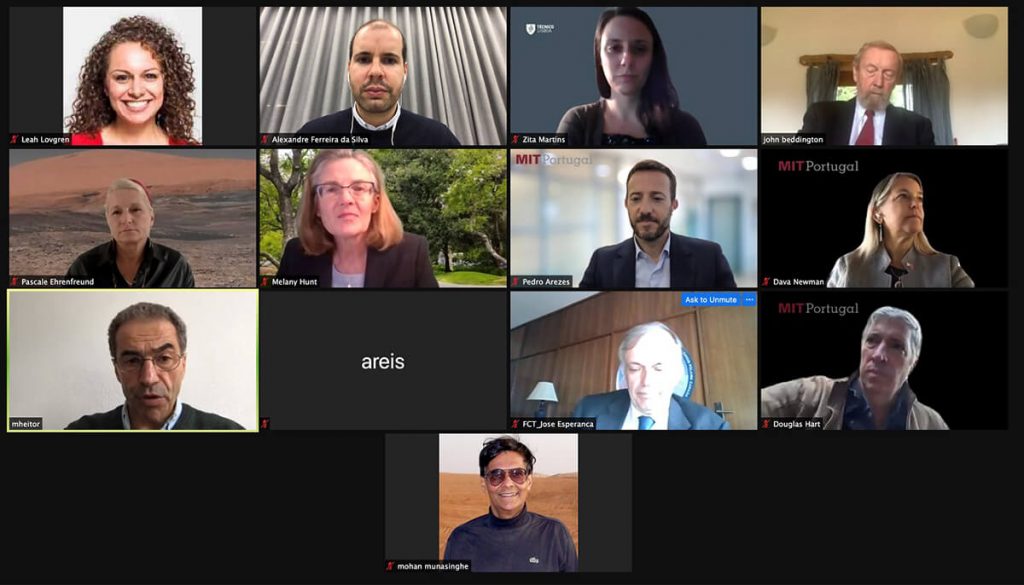MIT Portugal Program has been Evaluated by the External Review Committee (ERC)
On October 19-20, 2020, the MIT Portugal Program (MPP) was evaluated by the External Review Committee (ERC) composed of independent members from the international scientific community with relevant expertise. The committee’s role is to review the research, activities, and outputs of the program. The ERC also makes recommendations for the program in terms of strategy, coordination, and future milestones. The meeting was entirely virtually due to Covid-19 travel restriction
Chaired by John Beddington, Former UK Government Chief Scientific Adviser, the ERC members include: Pascale Ehrenfreund, Research Professor of Space Policy and International Affairs at the Space Policy Institute/George Washington University; Mohan Munasinghe, 2007 Joint Nobel Peace Prize Winner, Vice Chairman of Intergovernmental Panel on Climate Change; and Melany Hunt the Dotty and Dick Hayman Professor of Mechanical Engineering, Caltech.
During the meeting’s welcome, the ERC was joined by the Minister of Science, Technology and Higher Education, Manuel Heitor, the Vice-President of Portuguese Foundation for Science and Technology (FCT), José Paulo Esperança, the MPP Directors, Pedro Arezes, Zita Martins, Dava Newman and Dough Hart, as well as the coordination team from the MPP, Alexandre Ferreira da Silva and Leah Lovgren, as well as Ana Reis from FCT’s International Partnerships office.
The agenda included working sessions with MPP Program Management and with all the MPP Flagship Research Teams to report MPP2030 activities and results since the Flagships launched in 2018.
In response to the MPP2030 program overview presentation, the ERC appreciated the wide range of activities MPP offers— like workshops and Idea Sprints—that open many possibilities for people in Portugal to collaborate with constituents from a lead university such as MIT. MPP is currently structured to target the creation and sustainability of an innovation ecosystem with a strong focus on applied research. The program’s ecosystem bridges together companies and universities and provides students access to interdisciplinary and international research. The ERC views the process of merging research from MIT with Portugal as a unique opportunity for Portugal. Additionally, the ERC noted that MPP2030 is in an effective third evolution of the Program, which is observed in the 4 strategic research areas.
Regarding the program’s research areas, ERC highlights that the 4 areas represent domains that are important to the world today, as well as strategic areas for Portugal. Portuguese government leaders understand the importance of supporting areas of research that are key for the country by investing in science and education. The program will continue to leverage seeds/exploratory funding; student/faculty exchange; bridging basic science and innovation that can be incorporated into companies, and to continue building relationships with Portuguese faculty, students, and industry to yield maximum impact.

